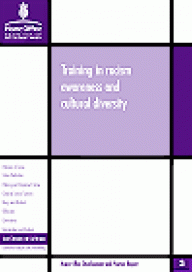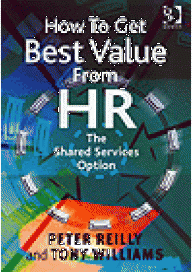Publications
 We author and publish a range of resources to keep you up to date with the latest developments in employment, labour market and human resource policy and practice.
We author and publish a range of resources to keep you up to date with the latest developments in employment, labour market and human resource policy and practice.
All our pdf publications are free to access.
-
📄
Business Start-Up Support for Young People, Delivered by The Prince's Trust
A Comparative Study of Labour Market Outcomes
Meager N, Bates P, Cowling M | Feb 2003 | Department for Work and PensionsThis report examines the effectiveness of the Business Programme of The Prince's Trust and analyses the longer-term labour market outcomes of young adults who are supported into self-employment. The study was commissioned by the former DfEE in 1999 and carried out by the Institute for Employment Studies (IES) and Marc Cowling of the London Business School (LBS).
-
📄
Questions to Measure Commitment and Job Satisfaction
Hayday S | Feb 2003 | Institute for Employment StudiesAs the title suggests, this paper identifies questions measuring employee commitment and job satisfaction. There are limitations to measuring morale and motivation by direct questions about their levels. The more practical approach of using statements about commitment and job satisfaction as indicators was discussed as these provide greater understanding of the issues.
-
📄
Employers and the New Deal for Disabled People - Qualitative Research, First Wave
Aston J, Atkinson J, Evans C, Davis S, O'Regan S | Feb 2003 | Department for Work and PensionsThis publication is no longer available. This report contributed to the national evaluation of the New Deal for Disabled People (NDDP). It sets out the first results from research on employer awareness of, and involvement with NDDP. Other linked studies contributed evidence on other stakeholders, particularly customers of the programme and the job brokers delivering it.
-
📄
The Link between Pay and Performance
Reilly P | Jan 2003 | Institute for Employment StudiesThis is a short note examining the relationship between performance and remuneration. We have concentrated on the link at individual (rather than group or corporate) level and we have focused on pay, not any other forms of reward. Finally, we have not looked specifically at the different techniques for relating performance to pay.
-
📄
Childcare, 16-19 Year Old Parents and Further Education
Dench S, Evans C | Jan 2003 | Department for Education and SkillsThis publication is no longer available. A key part of Government education and training policy is the encouragement of more people from low income families and disadvantaged backgrounds to participate in further education. The provision of student support is a central part of the policy. It is recognised that different groups of young people experience particular barriers and difficulties when accessing further education. One group in which there is considerable interest is 16-19 year old parents and childcare has been found to be a major barrier for these parents.
-

Training in Racism Awareness and Valuing Cultural Diversity
Tamkin P, Aston J, Cummings J, Hooker H, Pollard E, Rick J, Sheppard E, Tackey N D | Jan 2003 | Home OfficeThe report of the Stephen Lawrence Inquiry acknowledged the existence of institutional racism and recommended that the provision of training be reviewed (recommendation 54). This good practice guide provides recommendations on what constitutes effective practice and guidance on how practice can be improved and strengthened.
-
📄
A Review of Training in Racism Awareness and Valuing Cultural Diversity
Tamkin P, Aston J, Cummings J, Hooker H, Pollard E, Rick J, Sheppard E, Tackey N D | Jan 2003 | Home OfficeThe report of the Stephen Lawrence Inquiry acknowledged the existence of institutional racism and recommended that the provision of training be reviewed (recommendation 54). The findings of a study for the Home Office have been brought together in this detailed research report. A good practice guide is also available that provides recommendations on what constitutes effective practice and guidance on how practice can be improved and strengthened.
-

How To Get Best Value From HR
The Shared Services Option
Reilly P, Williams T | Jan 2003 | GowerIn ‘How To Get Best Value From HR’ the authors explain what shared services are and what they look like for the HR function. They describe why organisations opt for shared services and what activities are included. The book also sets out the relationship between shared services and the other HR activities, and between HR and line management.
-
📄
New Deal 50plus: Sustainability of Employment
Atkinson J, Evans C, Willison R, Lain D, van Gent M | Jan 2003 | Department for Work and PensionsThis research sought to assess the longer-term outcomes of ND50plus, and specifically to ask how far clients had stayed in work after the wage top-up provided by the Programme had expired. This publication is no longer available.
-
📄
The 'Safe Learner': Exploring the Concept
Kerrin M, Silverman, Thomson L | Nov 2002 | Learning and Skills CouncilDeveloping and promoting the concept of the 'safe learner' was an important part of the Learning and Skills Council's approach to learner health and safety. This report was used to inform policy and promote good practice in health and safety on LSC funded programmes. This was achieved through, for example, identifying what characterises a 'safe learner' and how supervisors can encourage safe behaviours amongst learners.
